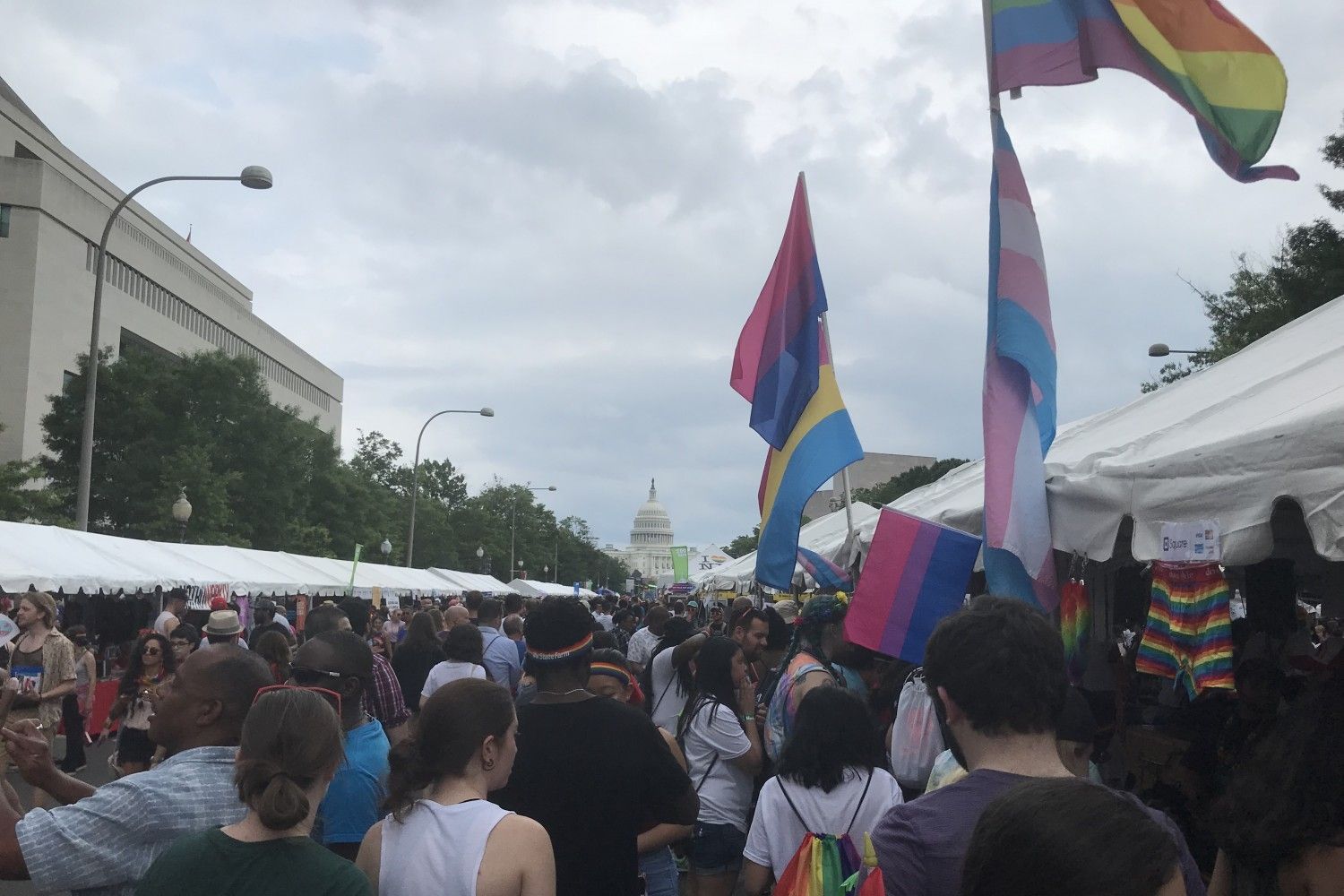Views expressed in opinion columns are the author’s own.
There’s nothing more important to the college experience than finding community. Sometimes, that involves finding out you’re not being represented properly — and pulling together your own group. That’s cool, that’s radical, that’s why a lot of activist presence at the University of Maryland comes from identity-based groups such as Political Latinxs United for Movement and Action in Society, Muslim Alliance for Social Change and the American Indian Student Union.
Recently, a student group for lesbians called Friends of Ellen asked to be officially recognized as an organization under the Pride Alliance and was denied, meaning they don’t have a permanent meeting spot on the campus yet. While lesbian students deserve to have a space, I don’t think the Pride Alliance is making a statement on that at all — after all, Friends of Ellen can still use the alliance’s Equity Center. If anything, this can be motivation for community building if we don’t get hung up on vilifying the Pride Alliance for their decision.
The Pride Alliance’s reasons for denying the group ultimately come out all right. Friends of Ellen was told the Pride Alliance was focusing on its existing student groups. A later statement indicated that “interpersonal conflicts” — such as “transphobic and biphobic comments” made by one of the founders of Friends of Ellen — also influenced their rejection.
“Interpersonal conflicts” are a pretty big deal for a group based on facilitating interpersonal communication and understanding identity. The Pride Alliance is at their discretion to accept or deny groups — and it’d be morally dubious to accept someone they perceive would be a problem.
The Pride Alliance is just another club on the campus run by students volunteering their time. They are not spokespeople for all LGBT people on the campus, and while they’re founded on values of inclusion, that doesn’t mean they have to endorse people they don’t support or provide space for everyone who requests it. We shouldn’t view this as a statement based on the gender or sexual identity of a group, but rather the personal differences between groups.
If the Pride Alliance doesn’t feel it can accommodate Friends of Ellen, that doesn’t deny Friends of Ellen’s right to exist, or to collaborate with the Equity Center. And while there is a fair amount of overlap between the Equity Center and the Pride Alliance, the former has indicated it would still welcome Friends of Ellen.
What sucks is that the distinction has to be made. There should be more space for LGBT student groups to grow and try different models than the one set by the Pride Alliance. Part of the difficulty comes from the size of its presence on this campus and how it’s angled as accepting everyone, with six gender/sexuality-based discussion groups within it. While this embraces the many loosely-linked identities under the LGBT umbrella, we could see much stronger coalition-building at this university.
If individuals who wanted different meeting models and a more intense agenda than broadly promoting diversity proceeded to branch out into separate organizations rather than rely on one centralized Pride Alliance, they’d be stronger resources for the community. They could also carve out more spaces for themselves than the Equity Center.
It’s stressful for Friends of Ellen to have to bounce from location to location. But if they could find permanent space in, say, the women’s studies department, it’d bring a new awareness to both the group and the department. It could bring the group new resources and spread the influence of the LGBT community on this campus. It’s important to make those new connections.
Friends of Ellen can be disappointed with the Pride Alliance, and anyone can say their communication about this issue should’ve been better. But vilifying the Pride Alliance is short-sighted and pedantic when they’re just another student club. Just because they’re inclusive of the LGBT community doesn’t mean they are the definitive LGBT community at this university, and there’s no reason they should overlook the things that make them uncomfortable. Communities are strongest when they’re creating their own change and spearheading their own movements. Let Friends of Ellen take a different path to create the space they need.
Hadron Chaudhary, opinion editor, is a junior English and geology major. They can be reached at chauds@umd.edu.



